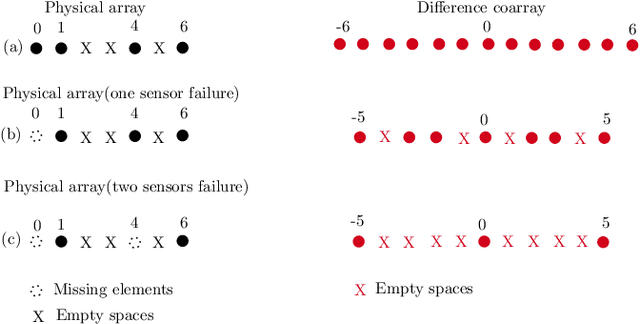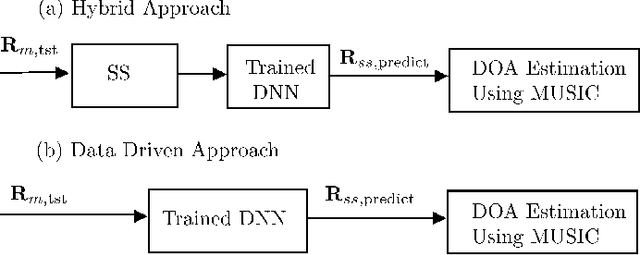Resilient Sparse Array Radar with the Aid of Deep Learning
Paper and Code
Jun 21, 2023



In this paper, we address the problem of direction of arrival (DOA) estimation for multiple targets in the presence of sensor failures in a sparse array. Generally, sparse arrays are known with very high-resolution capabilities, where N physical sensors can resolve up to $\mathcal{O}(N^2)$ uncorrelated sources. However, among the many configurations introduced in the literature, the arrays that provide the largest hole-free co-array are the most susceptible to sensor failures. We propose here two machine learning (ML) methods to mitigate the effect of sensor failures and maintain the DOA estimation performance and resolution. The first method enhances the conventional spatial smoothing using deep neural network (DNN), while the second one is an end-to-end data-driven method. Numerical results show that both approaches can significantly improve the performance of MRA with two failed sensors. The data-driven method can maintain the performance of the array with no failures at high signal-tonoise ratio (SNR). Moreover, both approaches can even perform better than the original array at low SNR thanks to the denoising effect of the proposed DNN
 Add to Chrome
Add to Chrome Add to Firefox
Add to Firefox Add to Edge
Add to Edge